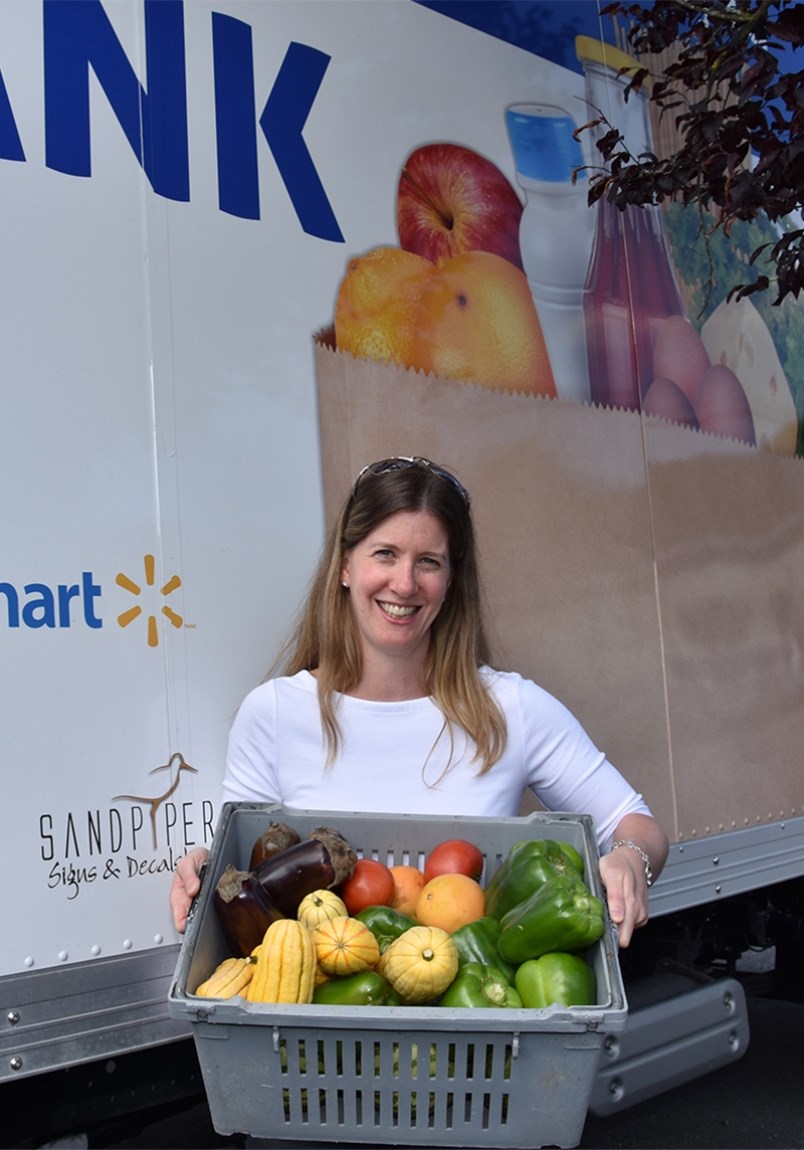B.C. farmed salmon will be offered to Tri-City food bank clients, giving them more access to healthy food options, says the CEO of Share Family and Community Services.
Saturday, the local social service agency accepted the first 300 lb. of salmon from Marine Harvest Canada, enough to feed approximately 1,000 people, according to Claire McLean, who said donations amounting to 30 lb. a week — enough for 100 people — will continue for the next year.
The donations came just days after the Union of BC Municipalities convention voters supported a resolution for a move toward close-containment aquaculture. They were arranged with the help of local Liberal MLA Joan Isaacs but are not a political endorsement, McLean said in a statement to the Tri-City News.
“In no way did Share understand this to be a politically-motivated donation," McLean said. "Share is a non-partisan agency. We were connected to Marine Harvest by MLA Isaacs after she visited the food bank and saw our new refrigeration capacity and heard about our desire to get more fresh meat, dairy and produce out to those we serve. We are unaware of any involvement by the [BC] Liberal Party in this donation.”
“As with all of our donations, Share follows the regulations and requirements of Food Banks Canada, Food Banks BC and Health Canada. Our priority is to get healthy food out to the hundreds of hungry people coming to our food bank every week. We greatly appreciate the community’s ongoing support to help us serve their neighbours.”
In an interview, McLean said salmon will add an additional protein to the hampers provided to clients and she expects people will appreciate the food because tinned meat, tuna and salmon are always snapped up.
As well, McLean said it’s possible Share will look at offering new ideas about how to use salmon for families that might be unfamiliar with it as a food source.
“This is something we might consider,” McLean said, noting that Share offers programs on healthy eating.
Isaacs, the MLA for Coquitlam-Burke Mountain, said the donation was not an effort to promote the B.C. salmon farming industry but came after a visit to Marine Harvest’s Campbell River operation.
Isaacs said her previous work as a philanthropy consultant inspired her to make the connection.
“I was always matching organizations and donors together," she said, "and when I went to the open house and saw the empty cooler, I asked, 'How can we fill it?'
“It’s going to feed 1,000 people initially, that first donation, and be an ongoing source of protein. I wasn’t doing this to be controversial and it has nothing to do with a political thing,” Isaacs said.
Both Share and Marine Harvest were supportive of the plan, which got underway in July, and by September, the first donations of individually wrapped portions of frozen B.C. salmon were delivered.
A spokesperson for Marine Harvest said the contribution was an effort to provide healthy food to hungry people in the Tri-Cities and not a public relations move by the company.
“When opportunities are coming our way and people are asking can we help feed people, we are more than willing,” said Jeremy Dunn, director of community relations and public affairs for Marine Harvest Canada.
He said the company recently established a value-added plant in Surrey where whole salmon are cut into fillets and steaks, and staff were pleased the company is making the donation, which will amount to about 1,500 lb. by the end of the year.
Dunn, who visited Share on the weekend, said he was pleased to be able to add fresh and frozen salmon to the canned fish that is usually provided in hampers. Marine Harvest Canada also donates to other food banks in communities where it operates.
“This is a no-brainer to be able to help feed people in an area where there was so much need. I was struck by how many working poor there are in the Tri-Cities,” Dunn said.
Share recently acquired the walk-in fridge and freezer as well as a refrigeration truck with the help of community donations and is now able to offer eggs, milk, fresh fruit and vegetables and some protein in addition to the non-perishable goods.
According to a press release, Share serves more than 6,000 people through the food bank.



